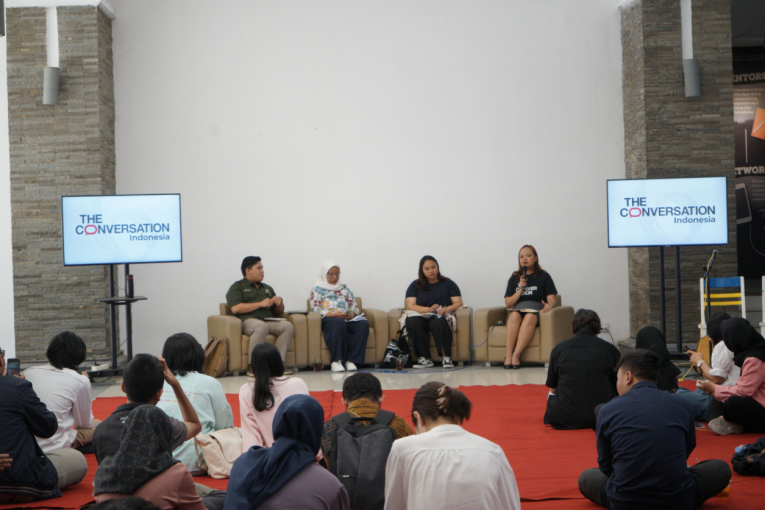
Yogyakarta, August 18th 2023─Freedom of speech and expression of opinion has long been included and guaranteed by the Indonesian constitution. Along with the development of the times, the role of technology in accommodating freedom of expression raises many controversies. The Conversation Indonesia together with the UGM Faculty of Social and Political Sciences raised this issue in a discussion entitled “Expression vs Repression: Reflecting on the Space for Civil Liberties in Indonesia” on Friday (18/8).
“In general, democracy in Indonesia is considered to be declining in quality. If we take a deeper look, what really went down was the civil liberties component. This itself is actually not a trend in Indonesia, but globally. There is a name for the quality of democracy and its calculations, which are later called democratic regression. This is a challenge,” said a lecturer at FISIPOL UGM, Amalinda Savirani, S.IP., MA., PhD. One of the components of the quality of democracy is civil freedom to speak and express.
“In the past, during the New Order era, it was known for example, for example, banning, so the press license was revoked so it could not be published. But what’s happening nowadays tends to be self-censorship, so it limits itself because it’s lazy to make noise, simply put. In my opinion, this is far more dangerous than a regime’s restrictions on civil liberties,” added Linda. According to him, this phenomenon builds a person’s tendency not to express his opinion in public, for fear of receiving hate speech.
Freedom of civil expression is not only influenced by one’s self-awareness and fear of hatred from other individuals but is also related to the legal practice that is applied. Indonesia itself has built several laws that regulate civil liberties in speech. “If law enforcement wants to prosecute someone because of freedom of opinion, it’s actually a matter of choosing which law to use. Our law enforcement culture tends not to refer to the rule of law but to political influence. I think this requires legal reform. And if we want to reform, it must be followed by a change in law enforcement culture,” said Julian Duwi Prasetya, Director of the Yogyakarta Legal Aid Institute (LBH).
The practice of legal repression regarding freedom of speech and expression that occurs does not yet have a solid foundation. Julian revealed clear examples of this legal suppression often occurred in demonstrations and protests carried out by the public or students. “It happened yesterday when the community protested against the environment in Wadas, some of them were arrested by the Purworejo Police. So in my opinion there must be changes and contributions from the government regarding the implementation of law enforcement, especially law enforcement officers,” he said.
Approaching the political year, of course, many critical actions were held against various political campaigns. The issue of repression becomes important when forms of public political participation are actually suppressed and limited, thereby reducing the quality of Indonesian democracy. The required legal reform is not only a form of construction of Indonesia’s political conditions, but also liberation of civil rights to express and express opinions.
